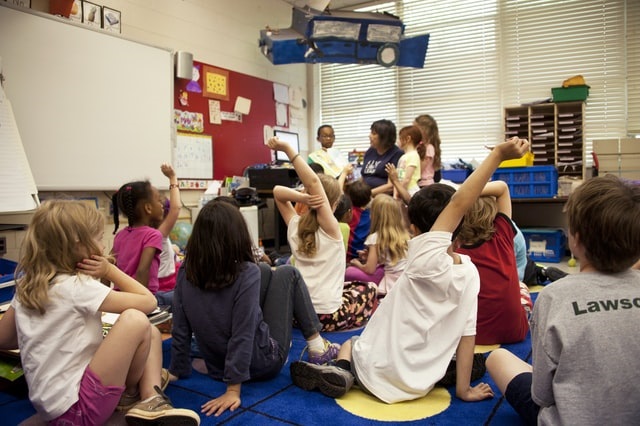

Research suggests that regular exercise can boost memory functioning, improve concentration and improve mental health, all of which are vital for learning – so why not try to incorporate movement into your activities for EAL lessons? Whether you’re making the most of Total Physical Response (TPR) or taking a brain break from time to time, there are many ways we can get pupils moving in the classroom.
Show me your answers!
A good way to get pupils moving is by encouraging them to demonstrate their answers using actions. Make a mini quiz to check pupils’ understanding of a topic so far or display four possible spellings of a subject-specific word. Ask pupils to work in teams to decide whether the answer is A, B, C or D, and then to show you their response with an action. They could make the shape of the letter with their arms for A, B and C, and do the latest viral dance move if they think the answer is D. I recommend you skew the quiz in favour of ‘D’ to let your pupils move as much as possible!

Have fun with the present continuous!
One fun game to practise the present continuous involves pupils taking it in turns to act out an activity e.g. ‘I’m eating spaghetti’. The rest of the class needs to guess the activity and say the complete sentence accurately in order to win the point. You can adapt this activity to make it competitive by dividing your class into groups. Why not ask the pupils to prepare some subject-related sentences before they mime them? e.g. ‘I’m a plant and I’m growing’.
Professor Flash Says…
This game follows the principles of a popular game you may know involving a guy called Simon – but our version has the FlashAcademy® spin on it with the friendly Professor Flash. Say an action and your pupils need to act out what you say – but only if you start the instruction with ‘Professor Flash Says’ or they are ‘out’. You can use sentences that review vocabulary you’ve covered in class recently. Once pupils are ‘out’, involve them further by asking them to suggest instructions and be Professor Flash.
Ready to mingle?
There are endless possibilities to use mingling activities for EAL lessons. From the classic ‘Find someone who…’ to writing and carrying out surveys, mingling helps pupils put new grammatical structures into practice whilst having the chance to move around the classroom and take part in social interaction. Pupils can practise using new structures and functional language by asking questions about life experiences with the present perfect, giving advice to their classmates or predicting their classmates’ futures.

Set up a gallery walk
Liven up your peer feedback sessions by setting up a gallery walk. This works best if giving feedback on posters or projects rather than long essays. Display the projects around the room and ask pupils to write feedback on post-it notes to stick on the posters. Make sure pupils understand what counts as appropriate feedback and display the marking criteria so they have a specific focus. This way, the quality of peer feedback is usually more balanced than when swapping paper with a partner. In addition, pupils get the chance to see more of their peers’ work and have the added boost of having their work displayed.
Vocab treasure hunt
Okay, so the treasure in this case may be a picture or a quotation, but the concept generates almost as much excitement as a chocolatey Easter Egg hunt. To introduce or review school subjects vocabulary, stick (or hide!) subject flashcards around the classroom with a number written on them. Pair students and give them a sheet to write down the names and numbers of subjects they find. You can set a time limit or declare the fastest team to find all the subjects the winners. For secondary pupils you could review quotations from English Literature by giving pupils a list of characters, sticking quotations around the room and asking them to work together to find all the quotations and note them down next to the correct character.
This resource contains everything you need for a treasure hunt, ‘find someone who…’ and present continuous miming game here! These activities for EAL review beginner vocabulary, with a focus on sports and free-time activities. Let us know how it goes over on our Twitter page!

